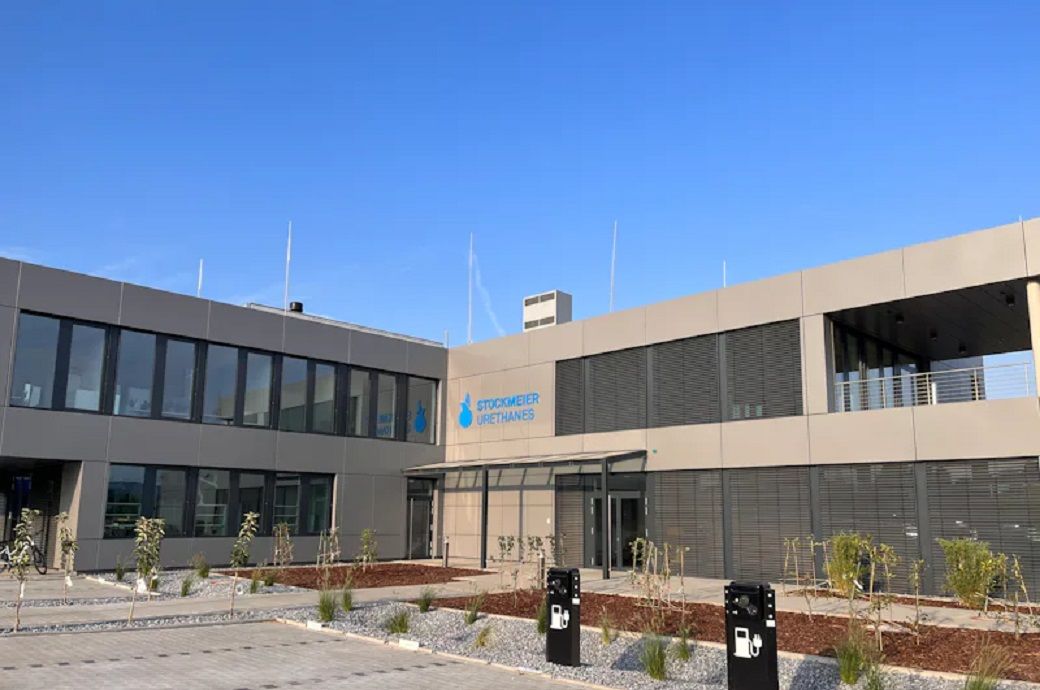The use of BMB Lupranate in the polyurethane manufacturing process allows STOCKMEIER Urethanes to leverage more sustainable solutions without the need for reformulations, new production equipment or changes to its supply chain. Creating polyurethane binders from mass balanced isocyanates complements STOCKMEIER Urethanes’ efforts to promote environmental stewardship and a more circular economy.
The Stobielast S product line also includes water-based & solvent-free coatings, GREENGUARD and GREENGUARD GOLD certified products, and U.S. Department of Agriculture (USDA) Certified Biobased labeled products.
BASF and STOCKMEIER Urethanes USA have launched Stobielast S polyurethane binders for playgrounds, using domestically produced Biomass Balance Lupranate MDI.
This partnership enhances sustainability in the surfacing industry.
The binders include eco-friendly coatings and certifications, reflecting both companies’ commitment to reducing their carbon footprints.
“With playground season in full swing across North America, we are excited to team with BASF and become the first U.S. polyurethane pour-in-place (PIP) binder manufacturer to forge a domestic partnership over BASF’s BMB isocyanates,” said Christian Martinkat, president and CEO of STOCKMEIER Urethanes USA, Inc. “This collaboration marks a significant advancement toward enhancing product innovation and expanding manufacturing capabilities in the surfacing industry. We can take a big step toward greater sustainability of our products by offering a version of our high-quality PIP binders produced with renewable feedstock-based MDI. This partnership advances our goal of reducing STOCKMEIER Urethanes’ carbon footprint worldwide.”
“At BASF’s Monomers division, we are proud to partner with STOCKMEIER Urethanes as the company scales up its more sustainable production of PIP binders using BMB MDI,” said Stefan Doerr, senior vice president, Monomers North America at BASF. “All of our BMB MDI products are certified according to globally recognized ISCC PLUS and REDcert² standards and produced right here in the United States.”
BASF aims to achieve net zero emissions by 2050. Bio-circular feedstocks used to make BMB MDI play an important role in reducing the product carbon footprint (PCF), which sums up the total greenhouse gas (GHG) emissions generated by a product over the different stages of its life cycle. BASF’s Monomers division is following an ambitious sustainability roadmap and will expand its portfolio of products with a lower CO2 footprint while committing to providing a circular option in every major product line by 2025.
Like BASF, STOCKMEIER Urethanes is deeply committed to sustainability, actively participating in the Responsible Care initiative through the American Chemistry Council (ACC) to enhance health, safety and environmental practices. The company implements various sustainability measures, such as waste reduction and energy efficiency in its production processes. By prioritizing sustainability across its operations and collaborating with stakeholders including customers, suppliers, and industry partners, the company strives for responsible growth and innovation, aiming meet the market demand for greener solutions.
Note: The content of this press release has not been edited by Fibre2Fashion staff.
Fibre2Fashion News Desk (HU)


